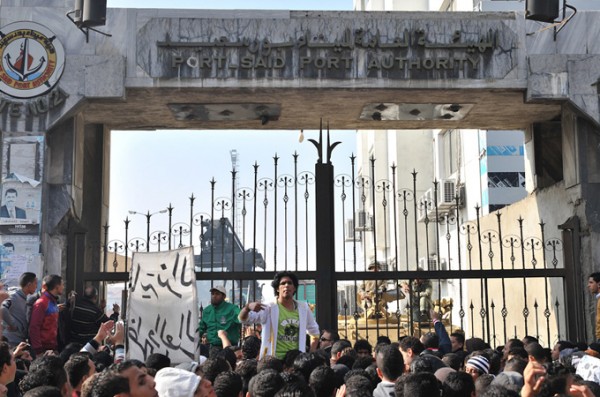
Protests in Port Said, Egypt in February 2013. Egypt is just one among many countries experiences challenges to democracy this week. Photo: AFP via aljazeera.com
The fragility of democracy has been on full display this week. Distressingly, challenges to freedom and order have occurred literally around the globe. Here is an overview of situations to monitor; all of these stories broke today, Wed. March 6, 2013.
Venezuela
I would be remiss to not start with the March 5 death of Venezuela’s beguiling President Hugo Chavez, who it seems was equally loathed and loved. His anointed successor Nicolas Maduro is now interim president.
Many questions about governance in Venezuela and democracy’s place in it remain unanswered, as I have covered here and here. Will an election be held within the 30 day timeframe established by the national constitution? If so, would it be free and fair?
The presidential election will likely be contested by the assumed heir to Chavez — Maduro — and opposition leader Henrique Capriles Radonski, whom Chavez defeated in last October’s race (more on this here).
Whatever your opinion of Chavez, there’s no denying his influence on Venezuela and the region. But he leaves behind a legacy of avoiding democracy when needed to hold onto power. I hope his successor, whoever it turns out to be, does not follow this principle.
Kenya
Another country having election controversy is Kenya. It was announced today that an electronic voting system in place for Monday’s presidential election malfunctioned, leaving the validity of the vote count in serious jeopardy. The country’s election commission insists all ballots will be accurately processed, and independent observers did not report any violations or election tampering (as of now, at least).
Even more disturbing is that a leading candidate, Uhuru Kenyatta, has been accused of war crimes by the International Criminal Court. Some are predicting that Kenyatta will end up in a run-off campaign against Raila Odinga, Kenya’s current prime minister.
Kenyatta’s running mate William Ruto ominously observed, “As we are all aware, the country is at a standstill at the moment.”
Egypt
Staying in Africa, upcoming parliamentary elections in Egypt have been suspended. The country’s Supreme Constitutional Court alleges that the elections were scheduled before he court had a chance to confirm their legality. According to the AP,
The new confusion surrounding the election underlined the paralysis gripping Egypt, between political deadlock, infighting among state institutions, a faltering economy and a wave of protests, strikes and clashes against [President Mohamed] Morsi and his Muslim Brotherhood that has spiraled for months around the country.
President Morsi will continue to have to traverse a rough road toward stability.
Nepal
No one seems to be able to agree on who is in charge of Nepal. Without a permanent constitution and a prime minister many consider illegitimate, the only person the country’s feuding political parties can agree on to lead them is Khilraj Regmi, Nepal’s leading judicial authority. Regmi is a largely unknown official with no political experience, which would usually be a detriment but this appears to be exactly why he is receiving support. He has stayed out of the political infighting which has consumed the country and prevented establishment of a functioning government.
Nepal’s Supreme Court — which Regmi leads — has the power to approve him becoming prime minister (with Regmi recused from the decision). He would hold executive power on an interim basis until formal elections presently scheduled for June. But an election was also supposed to happen last November but got cancelled.
Some are decrying the idea of appointing Regmi as a dangerous melding of political powers (judicial and executive) that are supposed to be separate. But others feel there is no other choice- without Regmi a government won’t exist.
—–
As these situations prove, democracy is a constant struggle. But the rewards it can bring make the risks worth taking.
More from FPA bloggers on items mentioned here: Kimberly J. Curtis provides the backdrop for Kenya’s election; Richard Basas on the future of the Latin American left post-Chavez.